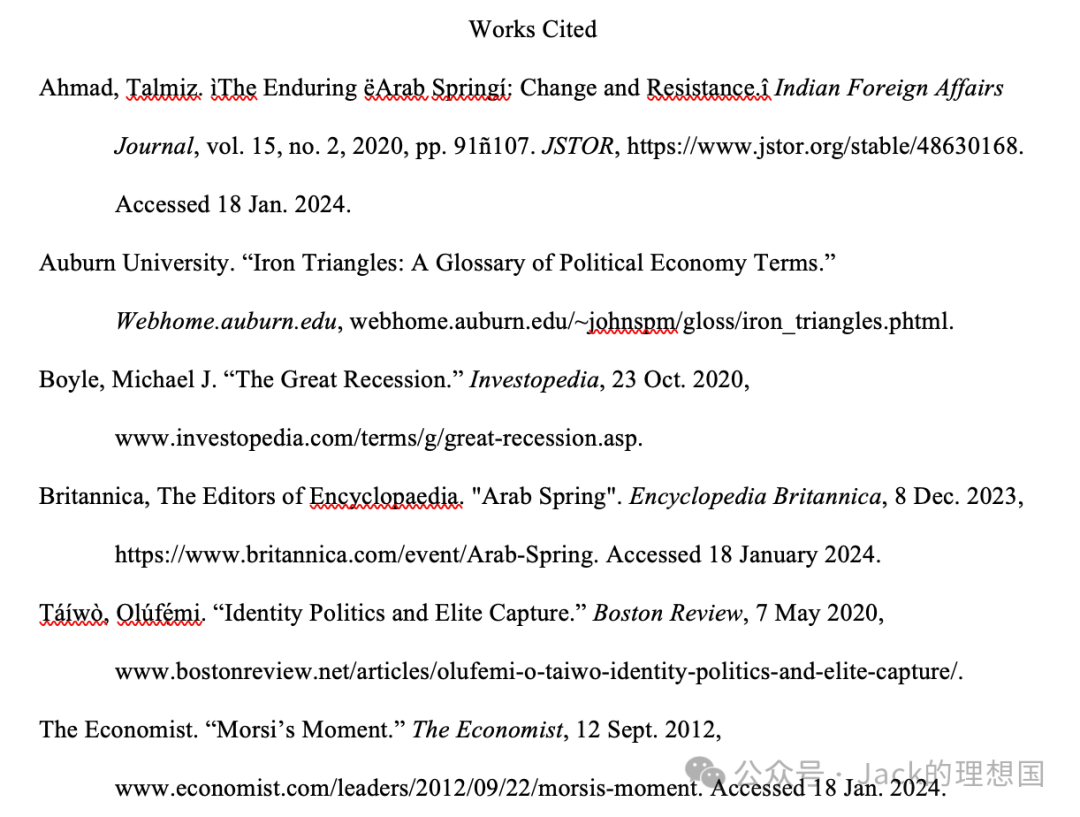Links Between East and West 53 - Elite Capture 东西方的连接53 - 精英捕捉
No government is immune from failure. There are many types of government failure, but one of the most significant is when a government fails to deliver its most fundamental promise: to ensure that the collective group’s interests are fulfilled. What leads to this government failure is often a phenomenon known as “elite capture.” Elite capture is a form of corruption when the “elite,” the subgroup of people with power over and access to crucial resources, make decisions that benefit themselves at the expense of the larger group’s interests. The elite, hence, “captures” resources and interests. This essay will examine elite capture in identity politics, sociopolitical movements, and government systems.
Elite capture is first visible in identity politics. This point may be counterintuitive. Identity politics relates to the justified political movements and campaigns pushing for greater societal equality. It is difficult to imagine how politicians and the elite can use identity politics for their interests. In 1957, the African American sociologist E. Franklin Frazier released his study of the U.S. Black middle class. Frazier accused the Black elite of using arguments for Black economic equality as camouflage to cover their actual intention of advancing their economic interests. For example, in 1900, Booker T. Washington, the primary leader of the contemporary Black elite, established the National Negro Business League. Many African American business owners and entrepreneurs enthusiastically joined. They bought into the claim that this organization would be critical in their effort to eradicate White racism in business and build a Black economy. However, it soon turned out that a Black economy was not a serious possibility, as the African American business did not have economic potential.
Why did the “myth of a Black economy” survive? Frazier argued that the small group of Black bourgeoisie pushed the idea forward. Some wanted to enjoy a monopoly of the African American economic market, and others craved to join the White-dominated firms by displaying knowledge of the African American market. Whatever the purpose was, the Black elite disguised their actual intentions with the lofty claim that establishing organizations such as the National Negro Business League would strengthen the call for racial equality. This example showcases the existence of elite capture in identity politics.
Elite capture can also proliferate in sociopolitical movements. During the 2011 Arab Spring, protesters called for establishing democratic governments. Several regime changes occurred in Tunisia, Yemen, Libya, and Egypt. However, while the new political elites that replaced previous governments promised reforms, they only desired to consolidate their power through different means. Consider Egypt. During the 2011 uprising in Egypt, widespread protests led to the ousting of President Hosni Mubarak, who had been in power for nearly 30 years. The protesters demanded political reforms, an end to corruption, and socioeconomic justice.
Mohamed Morsi, a member of the Muslim Brotherhood, won the presidential election in 2012. His presidency was marred by accusations of his forces focusing on consolidating their power and advancing their agenda rather than genuinely addressing the revolution's demands. Like many authoritarian leaders, Morsi issued a series of decrees in 2012 that significantly expanded his powers. His political allies, drafting a highly contentious constitution, dominated the Constituent Assembly the same year. The writing of the Constitution did not ensure adequate representation and input from various segments of society. The case of Egypt suggests that sociopolitical movements could ultimately lead individuals to rise to power. Quoting the views of some political philosophers, revolutions can be ineffective because they only replace one malfunctioning or totalitarian regime with another.
Finally, elite capture is a phenomenon that exists in the fundamentals of political systems. Some might first associate elite capture with authoritarian, highly centralized states. To cling to power and advance their interests, politicians often utilize different disguises to coax the public. However, elite capture is also prevalent in decentralized political systems. By yielding power to smaller units and groups, it is more difficult for a central authority to monitor the behavior of these groups. For instance, the U.S., while scattering political power across its three branches, is not immune from this phenomenon. U.S. politics is an iron triangle formed by Congress, the bureaucracy, and different interest groups. Congress funds and supports the bureaucracy; the bureaucracy loosely regulates and provides special favors to the interest groups; the interest groups lend electoral support to Congress.
In this system, there can be elite capture in almost every relationship. One infamous example is the influence of the financial industry on Congress leading up to the 2008 financial crisis. Some critics have argued that the close relationship between Wall Street lobbyists or bankers, one powerful interest group, and lawmakers led to the enacting of deregulatory policies. These policies served the interests of financial institutions as they could implement riskier practices. But such an advancement of elite interest was a moral hazard, causing Congress to neglect the public's well-being. As a result, banks collapsed, and financial mayhem ensued, endangering the livelihood of many Americans and other countries’ citizens. This example demonstrates the severe ramifications of elite capture. When the elite attempt to prioritize their interests, they usually approach certain branches of the government to utilize their power. This action can “blind” the government, as officials are still people who may not resist the temptation of wealth and other benefits. The lack of a central authority also makes it harder for other branches of the government to detect and legislate such behaviors. When the government becomes incompetent and is swayed by interest groups, its citizens bear the brunt of their incompetence.
Eliminating elite capture is particularly arduous. Like any other corruption, it is difficult to gauge how deeply it runs in a particular government. Additionally, the root cause of elite capture is strongly related to human nature and the inability to effectively put a leash on its greedy and selfish side. The problem is quite comparable to the issue of negative externalities in economics. While governments may impose taxes and regulations to forcefully prompt individuals to decrease the production or consumption of a good that leads to external costs, these policies often fail to tackle the motives that incentivize people to produce or consume these demerit goods. In the long run, undesirable actions persist.
In the case of elite capture, governments may attempt to stamp out graft with an iron fist. But brute force is rarely a viable long-term solution for such a phenomenon that may be invisible under surveilling eyes. Governments should take a hybrid approach. On the one hand, they must set up institutions and mechanisms to check the power of local governments or branches of the central government. The separation of powers is still effective, even though it does have its share of flaws. On the other hand, governments should focus on promoting economic and social equity. Underlying socioeconomic disparities contribute to elite capture, calling for policies strengthening social safety nets and reducing income inequality. Positive solutions like these deserve greater attention. Elite capture is an “evil” parasite in political, economic, and social structures. But punishing “evil” alone rarely eradicates evil. Building a safe, dynamic, and equitable society is a more crucial prerequisite for eradicating evil.

任何政府都难免失败。政府失败的类型有很多,但其中最重要的一种是政府未能兑现其最基本的承诺:确保集体利益得以实现。导致政府失灵的往往是一种被称为 "精英捕捉 "的现象。当 "精英",即掌握关键资源权力的小群体,"精英捕捉 "这种腐败形式描绘了如下现象:精英在做出有利于自己的决策时牺牲了更大群体的利益时, "捕捉 "了社会资源与公众利益。本文将探讨身份政治、社会政治运动与政府体系中的精英捕捉。
精英捕捉首先体现在身份政治中,这一点可能与直觉相反。身份政治涉及到在社会中推动更广泛平等的正当政治运动,很难想象身份政治会成为政客与精英为个人利益而使用的工具。1957 年,美国黑人社会学家 E. Franklin Frazier 发布了他对美国黑人中产阶级的研究报告。弗雷泽指责黑人精英利用黑人经济平等的论点作为伪装,掩盖他们谋取自身经济利益的真实意图。例如,1900 年,当时黑人精英的主要领袖布克-华盛顿(Booker T. Washington)成立了全国黑人商业联盟(National Negro Business League)。许多非裔美国企业主和企业家踊跃加入。他们相信,这个组织将是他们消除商业中的白人种族主义、建立黑人经济的关键。然而,事实很快证明,黑人经济并不可能实现,因为非裔美国人的企业并不具备经济潜力。
那么,为什么 "黑人经济神话 "还能存在呢?弗雷泽认为,是一小撮黑人资产阶级推动了这一想法。一些人希望垄断非裔美国人的经济市场,另一些人则渴望通过展示对非裔美国人市场的了解来加入白人主导的公司。无论出于何种目的,黑人精英们都以建立全国黑人商业联盟等组织将加强种族平等呼声的豪言壮语掩盖了自己的真实意图。这个例子展示了身份政治中存在的精英捕捉现象。
精英捕捉在社会政治运动中也会大量出现。2011 年 "阿拉伯之春 "期间,抗议者呼吁建立民主政府。突尼斯、也门、利比亚和埃及发生了数次政权更迭。然而,虽然取代前任政府的新政治精英承诺进行改革,但他们只是希望通过不同的手段巩固自己的权力。在 2011 年的埃及起义中,广泛的抗议活动导致执政近 30 年的胡斯尼-穆巴拉克总统下台。抗议者要求进行政治改革,结束腐败,实现社会经济公正。
穆兄会成员穆罕默德-穆尔西赢得了2012年的总统选举。穆罕默德-穆尔西在总统任内被指责过度专注于巩固权力与推进自己的议程,而不是真正解决革命的诉求。与许多独裁领导人相似,穆尔西在 2012 年颁布了一系列法令,大幅扩大了自己的权力。同年,他的政治盟友主导了制宪会议,起草了一部极具争议的宪法。宪法的起草并未确保社会各阶层的充分代表性和投入。埃及的情况表明,社会政治运动最终可能成为个人崛起的途径。引用一些政治哲学家的观点,革命可能是无效的,因为革命只是用另一个终将失败的政权取代一个已经失灵或极权的政权。
最后,精英捕捉是存在于政治制度基本结构中的一种现象。有些人可能会把精英捕捉首先与专制、高度集权的国家联系起来。为了掌握权力,促进自身利益,政客们往往会利用各种伪装来哄骗公众。然而,精英捕捉在分权政治体制中也很普遍。将权力交给较小的单位和团体,中央当局就更难监控这些团体的行为。例如,美国虽然将政治权力分散到三个分支,但也不能幸免于精英捕捉。美国政治基本上是由国会、官僚机构与不同利益集团组成的铁三角。国会为官僚机构提供资金及支持;官僚机构为利益集团提供松散的管理和特殊的优惠;利益集团为国会提供选举支持。
在这个体系中,几乎每一种关系都可能存在精英捕捉。一个臭名昭著的例子就是 2008 年金融危机爆发前金融业对国会的影响。一些评论家认为,华尔街游说者或银行家这个强大的利益集团与立法者之间的密切关系导致了放松监管政策的颁布。这些政策迎合了金融机构的私人利益,因为它们可以实施风险更高的交易与炒卖。但这种精英利益的提升是一种道德危机,导致国会忽视了公众的经济安全。结果,银行倒闭,金融混乱接踵而至,精英捕捉危及许多美国人和其他国家公民的生计。这个例子说明了精英捕捉的严重后果。当精英试图优先考虑自己的利益时,他们通常会找政府的某些部门来利用自己的权力。这种行为会 "蒙蔽 "政府,因为官员也可能无法抵挡财富或其他利益的诱惑。缺乏中央权力机构也会使政府其他部门更难发现,进一步立法禁止此类行为。当政府变得无能并被利益集团左右时,其公民就会首当其冲地受到其无能的负面影响。
消除精英捕捉尤其艰巨。与任何其他类型的腐败一样,人们很难估量精英捕捉在特定政府中的根深蒂固的程度。此外,精英捕捉的根源与人性以及无法有效约束其贪婪、自私的一面密切相关。这个问题与经济学中的负外在性问题颇为相似。虽然政府可以通过征税或监管来强制促使个人减少生产或消费会导致社会成本的商品,但这些政策往往无法解决激励人们生产或消费这些不良商品的动机。从长远来看,不良行为依然存在。
在精英捕捉的情况下,政府可能会试图用铁腕来铲除贪污腐败。但是,对于这种在监视下可能看不见的现象,蛮力很少是可行的长期解决办法。政府应采取混合方法。一方面,政府必须建立机构与机制,制约地方政府或中央政府分支机构的权力。三权分立虽然有其缺陷,但依然有效。另一方面,政府应注重促进经济与社会公平。潜在的社会经济差距助长了精英捕捉现象,这就要求政府制定加强社会安全网和减少收入不平等的政策。这些积极的解决方案值得更多关注。精英捕捉是一种 "恶",是政治、经济与社会结构中的寄生虫。但单靠惩治 "恶 "很少能根除 "恶"。建立一个安全、有活力、公平的社会,才是根除罪恶的更重要的前提。
- 本文标签: 原创
- 本文链接: http://www.jack-utopia.cn//article/629
- 版权声明: 本文由Jack原创发布,转载请遵循《署名-非商业性使用-相同方式共享 4.0 国际 (CC BY-NC-SA 4.0)》许可协议授权










